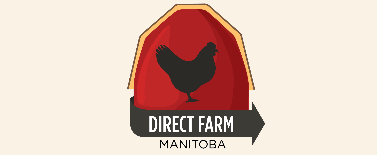What is a Transition Initiative?
 Tuesday, March 26, 2013 at 11:27AM
Tuesday, March 26, 2013 at 11:27AM By Selena Randall
Last week David Dawson outlined what a transition initiative is and outlined some of the things that the South Eastman Transition Initiative has begun.
Some of you may have attended our re-skilling workshops – we have sourdough cultures growing ready to make tasty and healthy bread following the last one, and I’m looking forward to learning about mushrooms and maple syrup on Wednesday March 27th.
But as David alluded to, transition initiatives are about more than just about re-skilling people to be more self-reliant. The transition initiative is worldwide community-led action with the common goal of improving the life and sustainability in its neighbourhood.
What’s it about? Well, instead of sitting on the couch and complaining about what bothers us, it’s about getting up and doing something towards tackling the problems we see. Small changes can lead to something bigger and help show the way forward for our government, businesses and individuals.
This group recognises that:
- Climate change and peak oil require urgent action.
- Life with less energy is inevitable. It is better to plan for it than to be taken by surprise.
- Industrial society has lost the resilience to be able to cope with energy shocks.
- We have to act together, now.
- Infinite growth within a finite system (such as planet Earth) is impossible.
- We demonstrated great ingenuity and intelligence as we raced up the energy curve over the last 150 years. There’s no reason why we can’t use those qualities to find new, more sustainable ways to live.
- If we plan and act early enough, and use our creativity and cooperation to unleash the genius within our local communities, we can build a future far more fulfilling and enriching, more connected to and more gentle on the Earth, than the life we have today.
We have a goal to engage the wider community and work with local government, businesses and community members to develop a vision that recognises the urgent need to cut fossil fuel use and reduce CO2 emissions, to provide resilience against the chaos prolonged floods, drought and other natural disasters that could be worse due to climate change. And we want to work together to proactively figure out the kind of future that works for ALL of us rather than waiting for someone else to create a future that works for just a FEW of us.
I’m not suggesting we have all the answers, or that we know how to make things happen, but we hope that by questioning the way things are and encouraging people to think about what they are doing and why we can start to make a difference in our province. The Manitoba government recently banned peat mining in provincial parks due to the public pressure over mining applications in Hecla provincial park. And more controversially, Steinbach asked for a review of bill C18 as a result of pressure from local churches and schools. These two very different issues demonstrate the power we have to make a difference if we are prepared to STAND UP AND SAY WHAT WE THINK.



Reader Comments (1)
Eat locally grown food. It is the one thing we can do that will address ALL other social issues. Health , poverty, climate change, crime, jobs, community, potholes. . All of these issues are impacted when you buy food grown on the land close to where you live.(bonus points if you grow it yourself)
Do not look to scientists. a new terchnology will not be the answer. We don't need better cars, we need less driving. When you ask yourself "what can i do?" look at your child. Providing for your child is an easy concept to grasp. You know you want your kid to be healthy, so you need healthy food. You want your child to have clean drinking water, be concious of what happens to your garbage and waste. if you want him/her to live in a community with jobs, support local business.
We can not blame the government or expect them to initiate change. We decide ourselves what the future will be like with all the choices we make. Eating local is a simple choice.